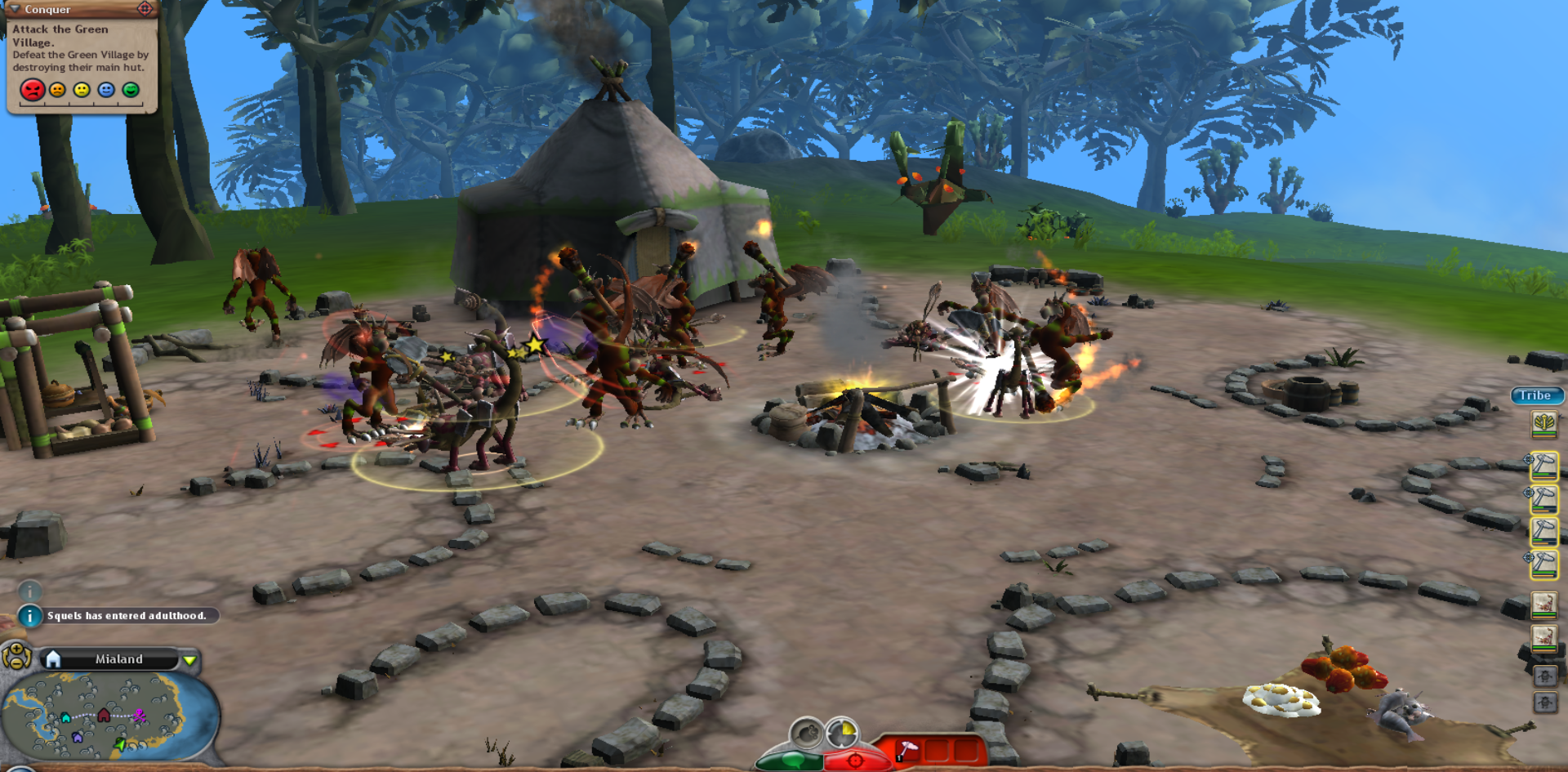The first game I played on my shiny new RTX 4080 PC was ... Spore (2008), and I LOVE it. Where are the sequels, EA?
In 2024, a sequel to Spore has never made more sense.
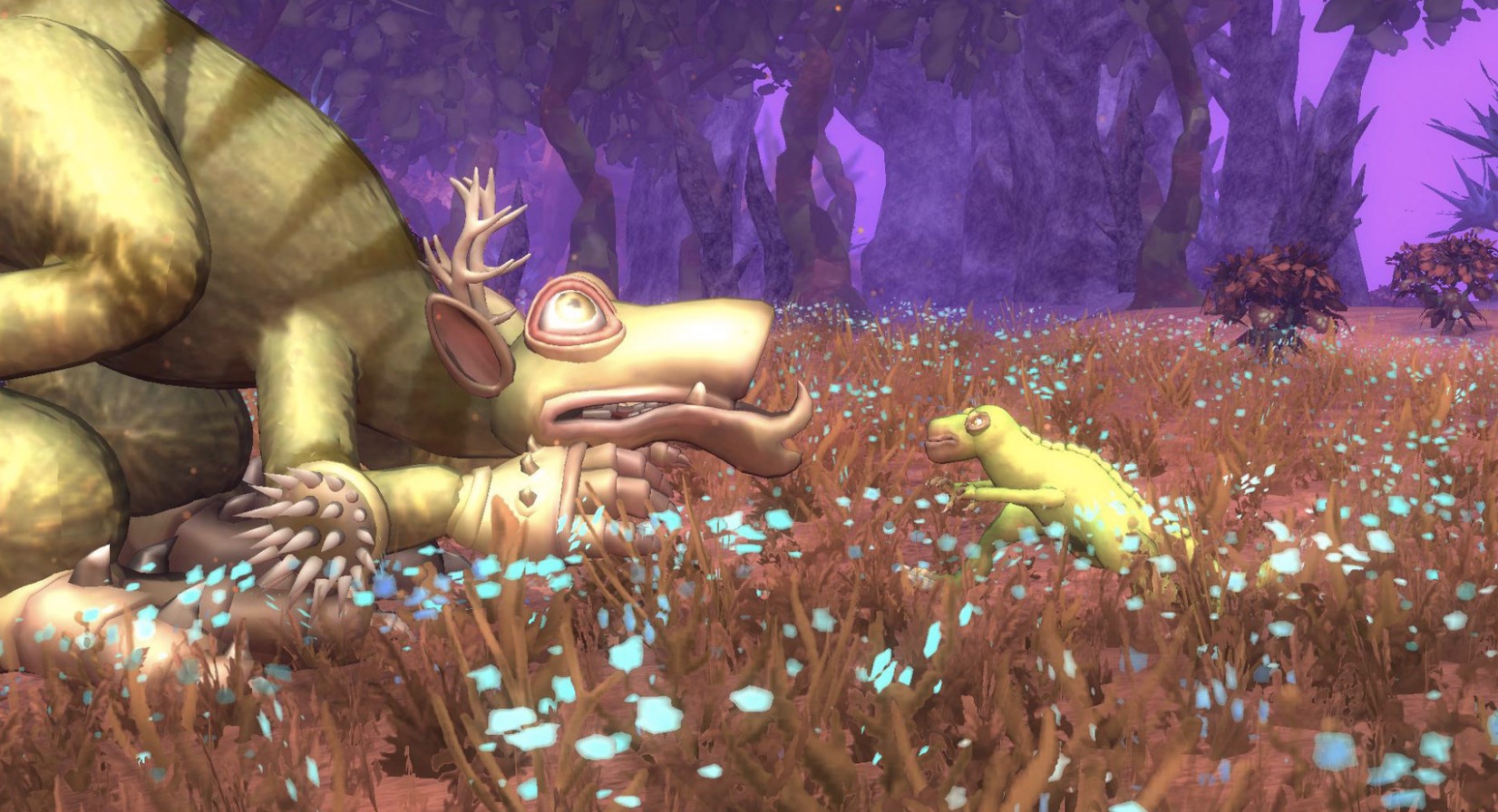
All the latest news, reviews, and guides for Windows and Xbox diehards.
You are now subscribed
Your newsletter sign-up was successful
I recently picked up a shiny new Razer Blade 16 (2023) model with RTX 4080 graphics and a QHD screen (thanks to Scan.co.uk for that). Naturally, to put what was probably last year's best gaming laptop through its paces, I opted for 2008's god game Spore, developed by EA's Maxis studio.
A younger relative recently visited (shoutout to her ❤️), and she asked if she could show me Spore, a game she'd played when she was small and had a lot of nostalgia for. I was only tangentially aware of Spore when it launched over 15 years ago, thinking it was some kind of EA Pokemon-like with procedurally generated critters. The reality couldn't be further from the truth. Despite the game's age, I found myself oddly sucked in by its quirky world, unique (and oft-horrifying) creatures, and eclectic genre blend that shouldn't make sense on paper.
Despite its quirks, I would say that at least conceptually, Spore has aged incredibly well. Some of its ideas were clearly ahead of its time, and in a world about to be dominated by AI-generated assets, Spore seems like the ideal kind of franchise EA should revisit in this bold new universe.
SPORE (2008) | $19.99
Spore is a 2008 "God game" where you progress from a single cell organism to a nuclear-equipped spare-faring alien species. In its hayday, Spore was a pioneer of user-generated content, and while simplistic, is oddly satisfying to play even in 2024.
See at: Steam
Spore is conceptual gold
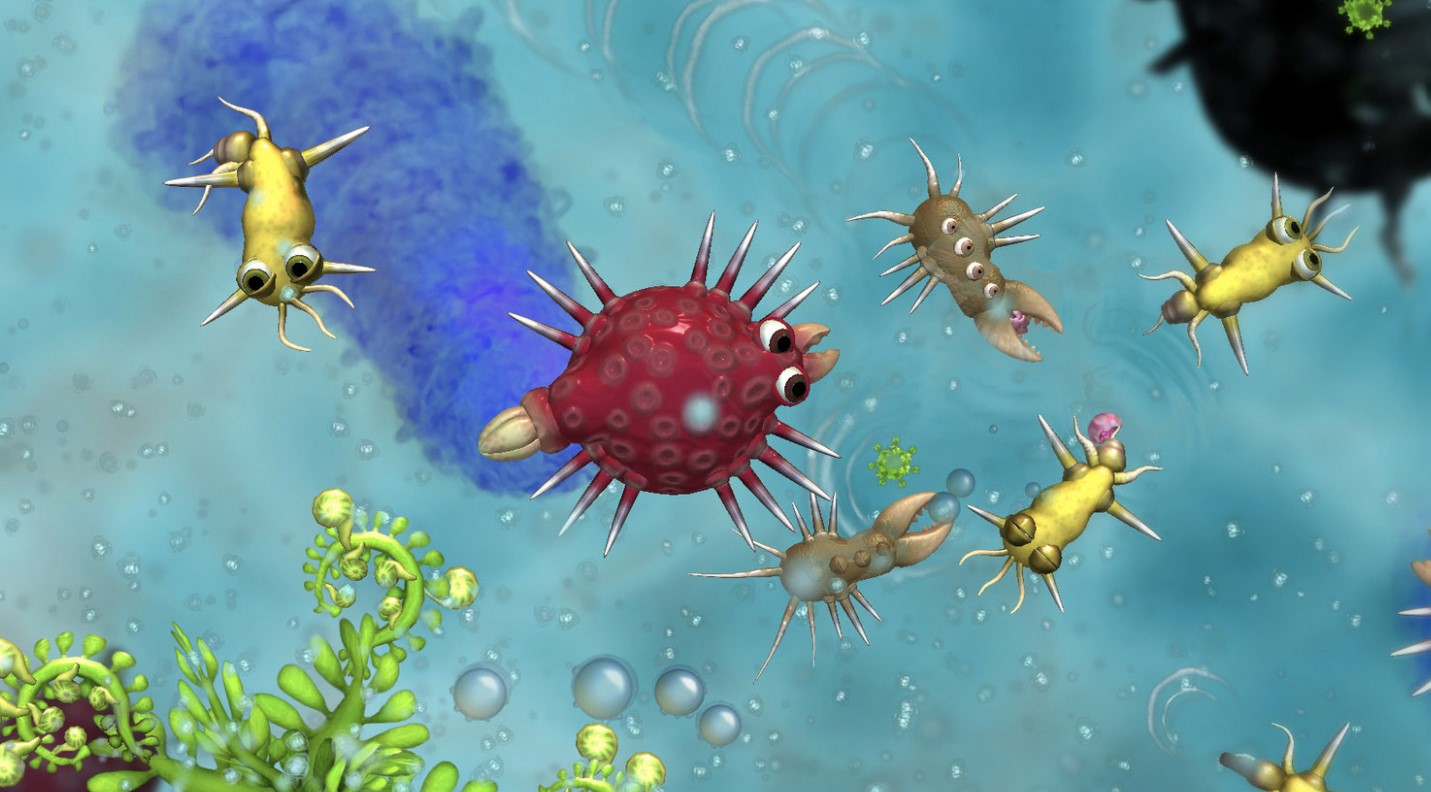
Spore is a "god game" in essence, which is a genre that was incredibly popular in the late 90s and early 00s. These types of games, typified by the likes of Black & White, essentially allow the player to "play god," and guide a species or civilization as the universe's sole overlord. The genre is relatively loose in definition, with overlapping strategic and simulation elements, although most revolve around the task of developing a civilization from its earliest permutation through to its logical conclusion as an advanced society. Spore takes this concept a little further than most.
Spore was criticized somewhat in its early days for its aggressive DRM, poor optimization, and lack polish on PC — and even now, we found the game would randomly crash across two different systems (save often and frequently, if you plan on playing). Overall, though, it ran quite well, despite lacking many of the more modern graphical bells and whistles, given its age. We're not really here for Spore's raw fidelity, though. Where Spore continues to be timeless is in its wild art style, and underlying gameplay implementation.
In Spore, you literally start life as a single cell organism. I've never really played a game that begins at the very building blocks of primordial life, and immediately found myself enamoured. All those years watching David Attenborough documentaries began to pay off, as I evolved my blob of protein from a hungry jello into a spiky murder machine.
Am I gonna write an article about Spore (2008) in 2024? yea. yea i am. also yes this is the first game i played on my rtx 4080 lol. pic.twitter.com/4Wwlkp7KMzJanuary 11, 2024
I had literally no idea what to expect from Spore at that point. Eventually, after evolving mandibles, eyeballs, and other crucial appendages, I sprouted legs and waddled onto shore, just as our Cambrian ancestors did millions of years ago. T'was here I began to realize that Spore was far more than meets the eye.
All the latest news, reviews, and guides for Windows and Xbox diehards.
Over the next few hours, I evolved from solitary predator to pack hunter, then to tribal gatherer, and then primitive society. Not only did my strange bipedal hack n' slash blob start wearing clothes and building huts, the game's genres began to evolve too. Spore goes from being a Pac Man allegory under a microscope, to being an action RPG in the jungle, to being an RTS complete with buildings, units, and supply chains. Eventually, your species evolves past all your tribal rivals and becomes the globally dominant species, building fighter jets and mechs, only for the game to become a soft 4X Civilization-like in the process. The scope of Spore is truly wild.
And sure, Spore is a bit of a victim of its own ambition. The various genres it takes you through are all incredibly simplistic in their own rights, but I think that's what gives it some of its appeal with youngsters to some degree. I'm not sure Spore would be enhanced by getting as complicated as Stellaris or Age of Empires, but I can't help but imagine what a modern sequel could look like, especially with today's takes.
A Spore sequel could be spectacular in 2024
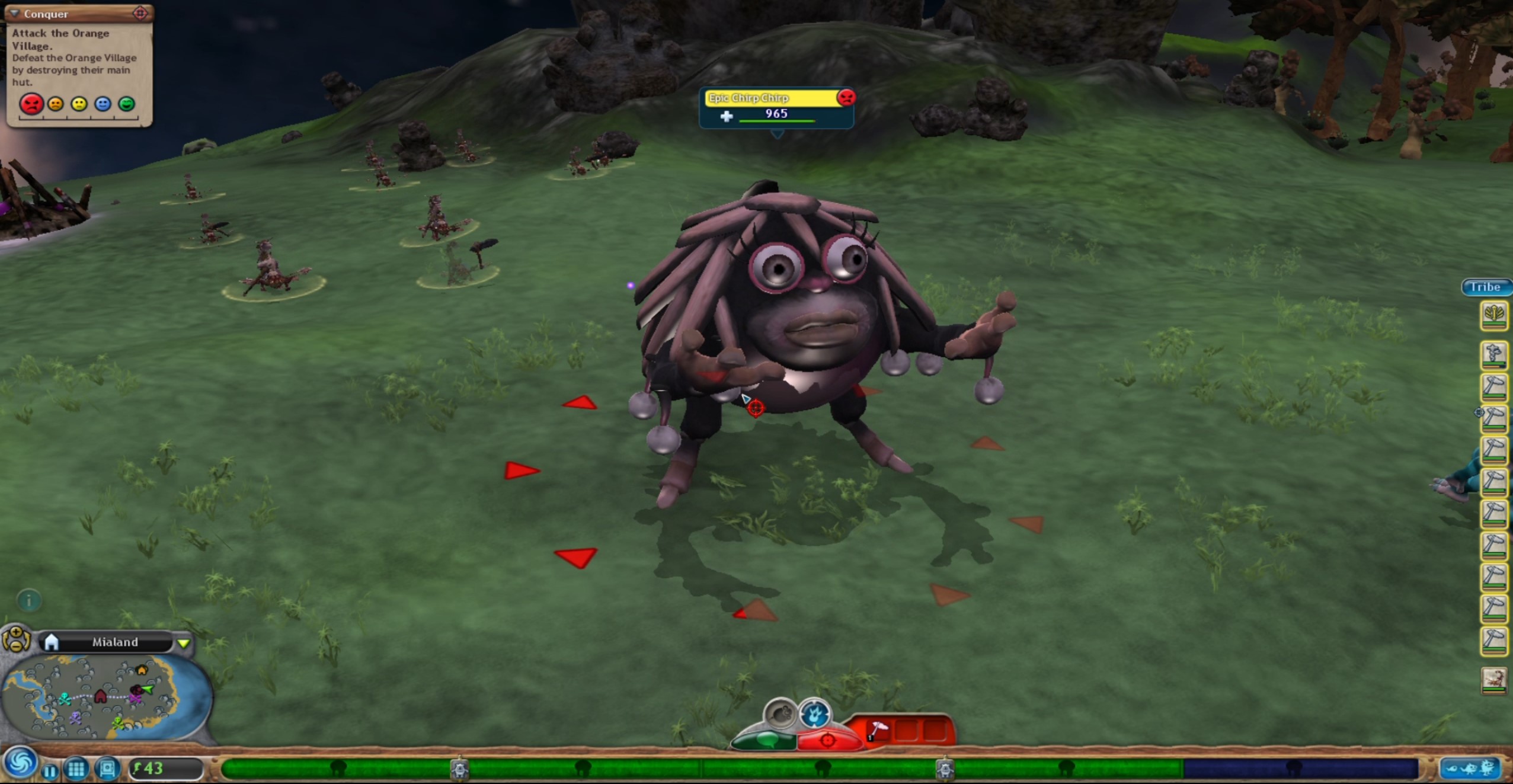
Spore was a bit of a pioneer in some ways, particularly with regard to the way its creature design systems work. Moulding your critters is incredibly intuitive with a mouse, using scroll wheel to resize different parts, with 3D axis editors present to shape and rotate the different parts. The way they interconnect without looking broken or ridiculous seriously gives modern games a run for its money, and it's kind of wild to me that EA didn't reproduce this tech in any of its subsequent games.
Indeed, Spore as a franchise is essentially mothballed in 2024. Maxis has gone through quite a lot as a studio, with some notorious controversies like its botched Sim City reboot coming to be known as one of the world's worst video game launches in history. EA as a corporate entity tends to be spectacularly good at squandering what it has. The publisher has become renowned for wasting quality games, studios, and individual personnel in the pursuit of profits and trend chasing, over true innovation. Spore well and truly represents the latter here, as an increasingly rare examples of some truly forward-thinking elements that would probably work incredibly well in today's times.
Spore has a heavy user-generated content aspect to it, where players could share their creature creations. The game also featured a full-blown API that developers could tap into for stat tracking, monster creation, and much more.
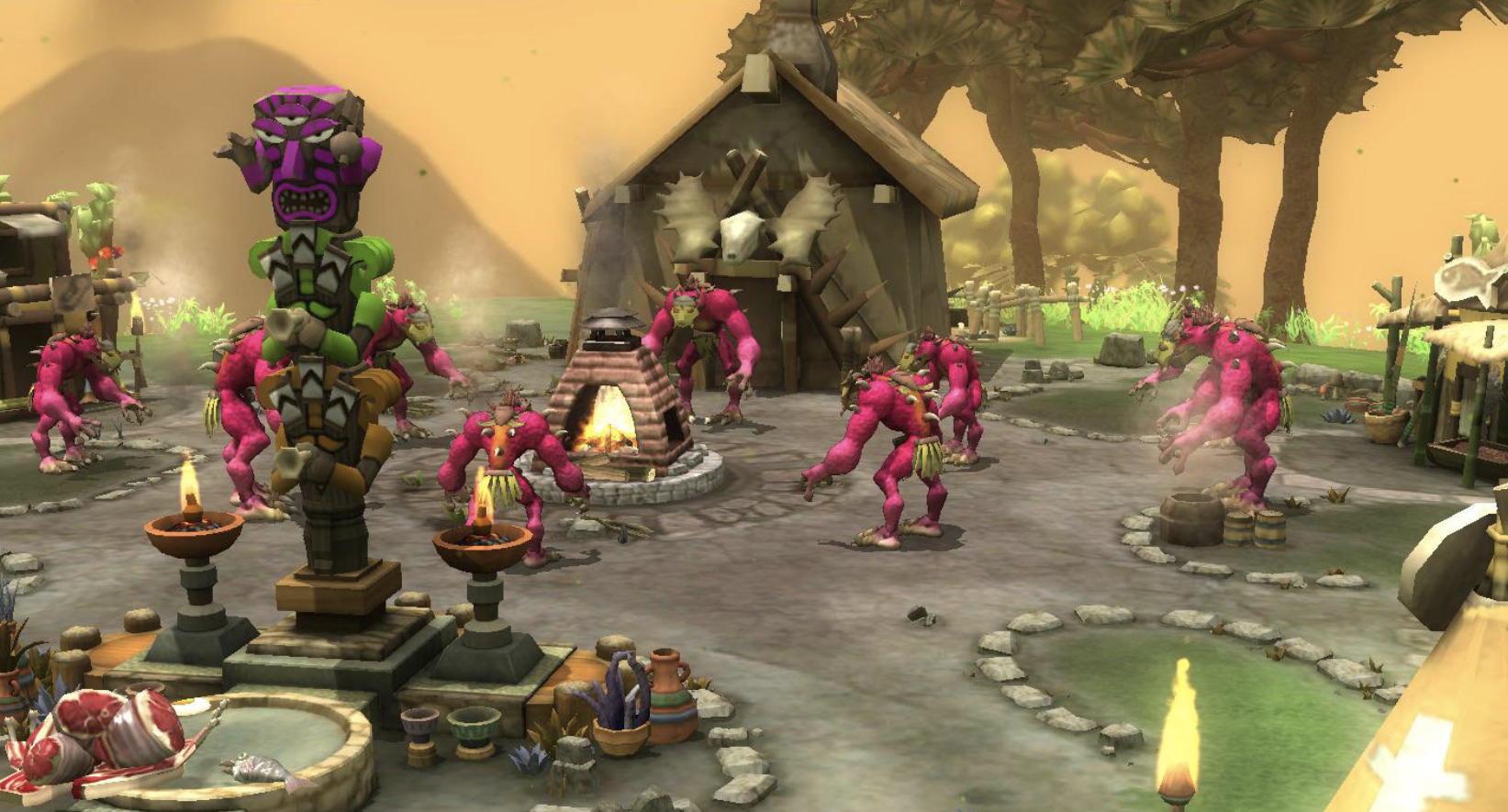
I call Spore conceptual gold because, indeed, the game's eclectic genre blend does struggle to make the case for itself as a game for long term repeated play. The different evolutionary stages do largely play out the same way each time you play, even though you can sort of follow different paths in the context of being herbivorous and more diplomatic, or carnivorous evolving to be more war-hungry. I attempted the latter, and found myself unable to keep pace with the games' AI in my quest for global domination, making me wonder if perhaps a more diplomatic approach might've served me a little better.
In any case, in the later stages of the game, Spore does begin to struggle to hold up as a "game," but I feel like that's something that could be easily fixed with thoughtful iteration and perhaps a Paradox-like approach to expansions and DLC. Where Spore succeeds is in its user-generated content and asynchronous content sharing — features that could be absolutely spectacular in today's times.
Imagine what a game like Spore, which hinges heavily on user-generated content, might look like if it tapped into modern social media platforms. Imagine sharing clever clips of your Spore creatures doing stupid stuff on YouTube Shorts or TikTok, imagine augmented reality filters that bring your critters onto mobile devices, perhaps following you around in a Tamagotchi-style mini game. What would a modern Spore look like supported by AI image models like Dall-E, generating worlds, dynamic events, and other critters in vast procedural worlds? Imagine asynchronous multiplayer and roleplaying, competing with other player's creations in a global evolutionary ladder, climbing through different genres that were more fleshed out and more thoughtful.
It's fun to dream about what Spore could be in 2024, with the same approach to innovation and forward-thinking the original had — although preferably a little more polished.
Spore holds up in 2024, especially for young'ns
Spore's odd genre-blending doesn't work as well as it perhaps could've done with better execution, but the game still holds up in 2024 in my opinion, especially as something to play with younger relatives. For youngsters, the simplicity might even be a strength, and there's something oddly endearing about Spore's surreal user-generated art.
RELATED: 'Strange Seed' is a "Spore-like" game coming soon to Steam
Although most playthroughs will play out largely in a similar way, there are multiple planets to explore with some of their own challenges and so on. And sure, the overall simulation pales in comparison to some of the heavyweights within each genre it tries to emulate. I think a future Spore game could find a more happy medium, though. It doesn't need to be as in-depth as something like Rimworld or gun for the cognitive load of something like StarCraft. Spore's strength is in developing your very own evolutionary path through a bright and colorful cartoon history, and in 2024, it still delivers quite an infectious experience.
As a fan of strategy simulation games, Spore was a surprisingly great experience. I was surprised how well it holds up in 2024, and similarly surprised by how unique it still is despite having been out what is approaching two decades.
Spore represents some of the best of Maxis, the legendary studio behind The Sims and some of EA's most addictive titles. These days, Maxis is all in on building content for The Sims 4, with hints of a sequel on the horizon. I can't help but think EA should revisit Spore, though, if it does want to explore how AI could help enhance user-generated content titles in a positive way.
Did you ever play Spore? What other classic games should get a modern revival? Hit the comments!

Jez Corden is the Executive Editor at Windows Central, focusing primarily on all things Xbox and gaming. Jez is known for breaking exclusive news and analysis as relates to the Microsoft ecosystem — while being powered by tea. Follow on X.com/JezCorden and tune in to the XB2 Podcast, all about, you guessed it, Xbox!

